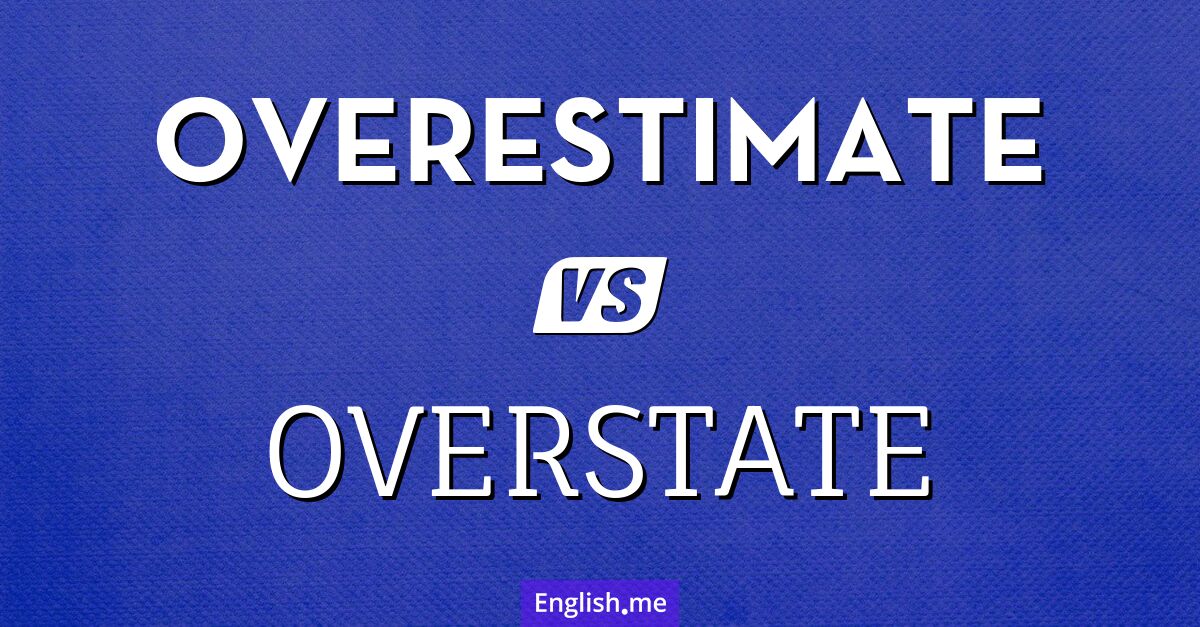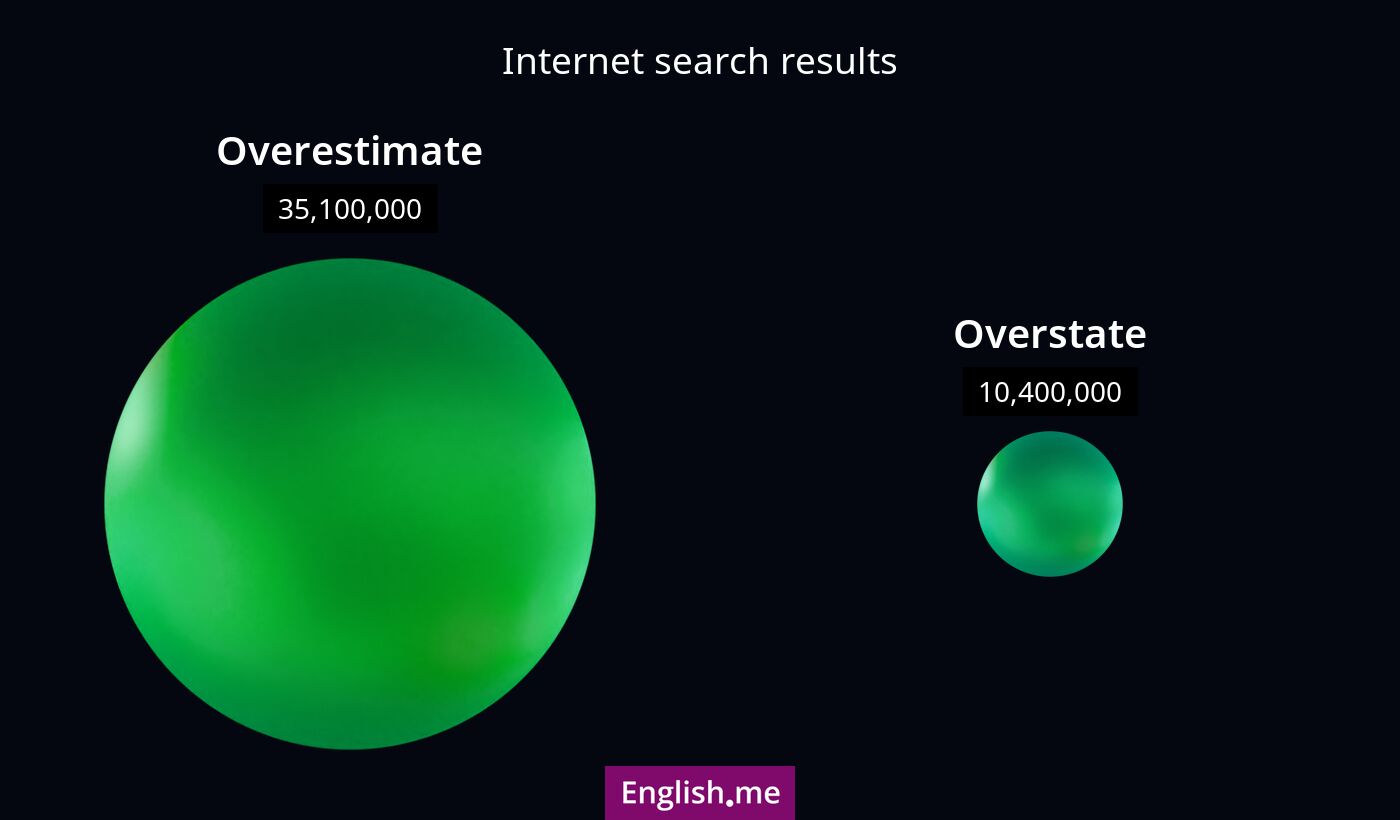"Overestimate" & "overstate": two ways to go overboard
Reviewed and edited by  Lloyd Cooper 19/02/2025, 14:46
Lloyd Cooper 19/02/2025, 14:46
English.me team member

 What is similar?
What is similar?
Both "overestimate" and "overstate" involve exaggeration or presenting something as more significant than it actually is. They both imply an assessment or description that exceeds reality.
 What is different?
What is different?
"Overestimate" refers to making an estimate or judgment that is higher than the actual value, often involving quantitative measures like time, cost, or ability. "Overstate" means to express or describe something in exaggerated terms, typically in speech or writing, without necessarily involving numerical estimates.
 Which one is more common?
Which one is more common?

 Examples of usage
Examples of usage
Overestimate- The team overestimated how much time the project would take.
- She overestimated her ability to run a marathon without training.
- Economists overestimated the growth rate for this quarter.
- He overstated his achievements on his resume.
- The article overstated the impact of the new policy.
- It's easy to overstate the importance of one good performance.

 English
English español
español française
française italiano
italiano deutsche
deutsche 日本語
日本語 polski
polski česky
česky svenska
svenska Türkçe
Türkçe Nederlands
Nederlands